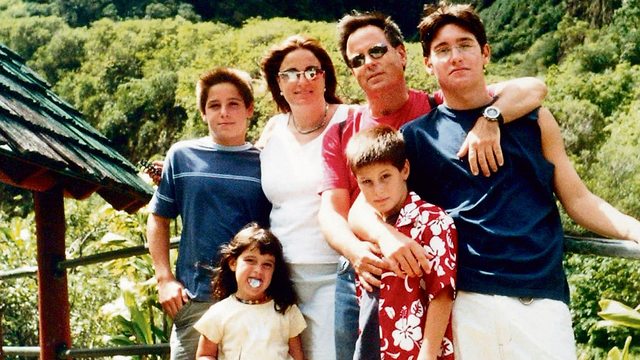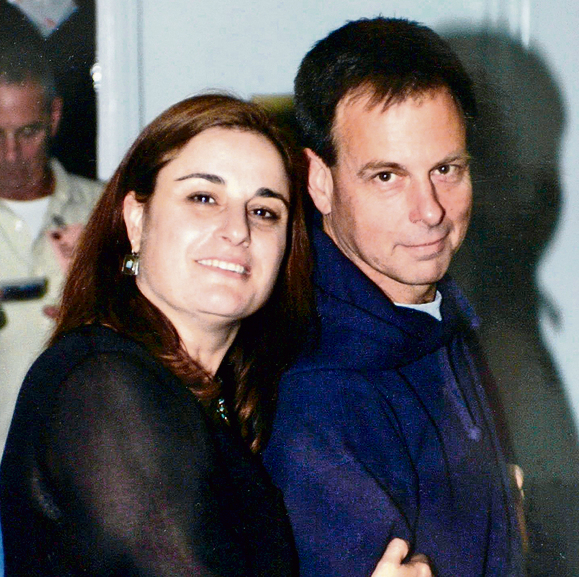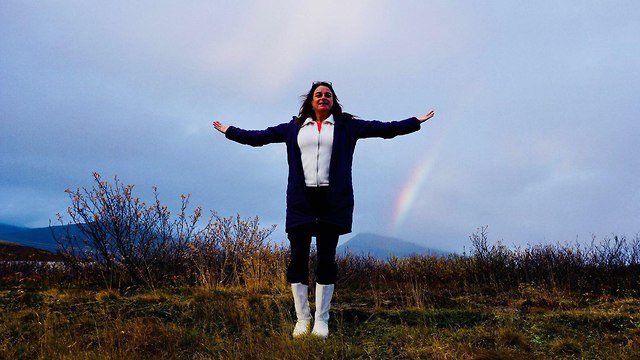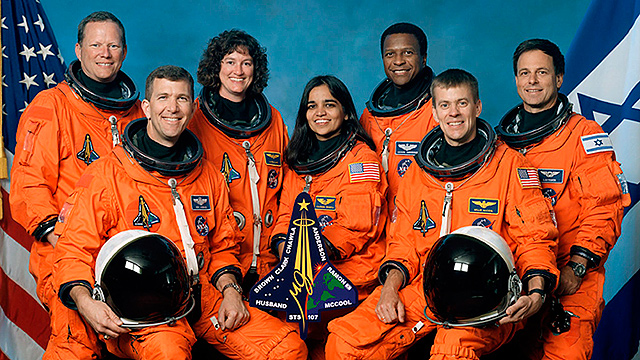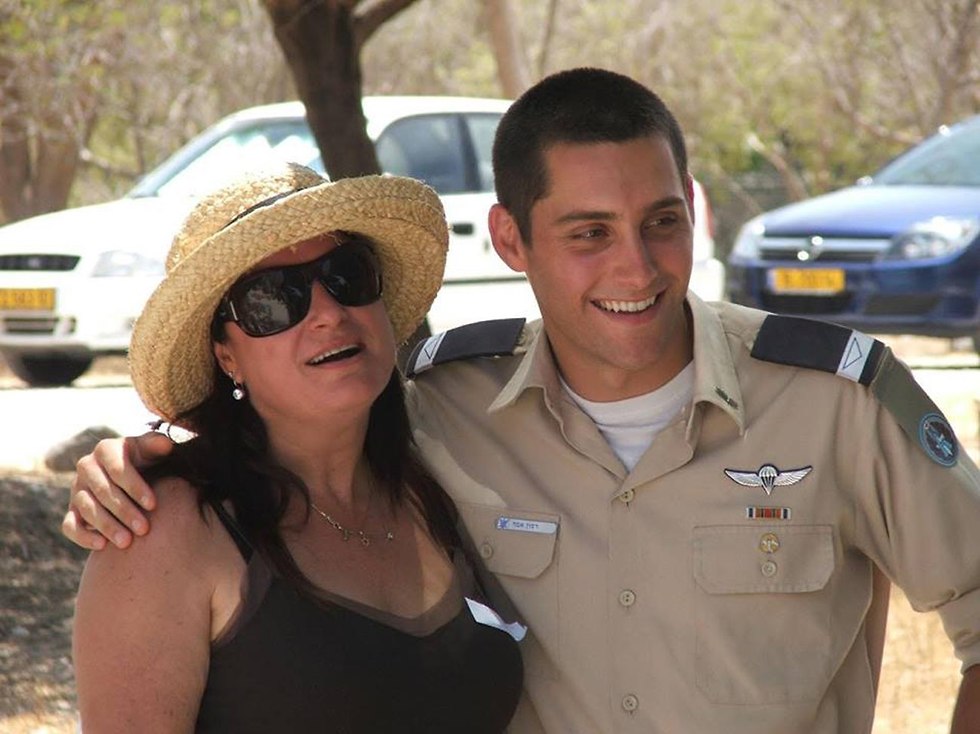
And so it was that they met their deaths under similar circumstances, leaving many other dreams unfulfilled.
My son Assaf wrote in his diary several months after losing his father: "Who is a hero? A hero must be brave, determined, possess life wisdom, be modest and have a kind heart. It's someone who accumulated achievements in life and risked his life for others. A hero is someone others look up to. My father is a hero. My mother is also a hero."
Heroes.
Ilan's childhood dream began at age 15, when he heard Neil Armstrong speak those immortal words that are seared into the annals of human history. As a youth in Be'er Sheva, the dream of becoming an astronaut took root in Ilan's heart, seemingly with no real chance of realizing it.
He loved the skies from the start. As a teen, he attended the local aviation club, but his chances of being accepted to the IAF pilots' course were slim, because he suffered from a medical condition over his arm. But against all odds he made it. Here too he faced difficulties. He had to leave the course due to a health issue and joined the electronic warfare unit. With them he fought during the 1973 Yom Kippur War, at a military post in the Sinai Peninsula that was almost conquered by the Egyptians. Despite the existential fear, Ilan would not to give up. He returned for the next pilots' course, and was found to have a natural gift for flying.
During one of his training flights, Ilan and his instructor encountered an issue with the plane steering system. They tried to solve it while the plane went into a tailspin. They then realized they had no choice but to eject. That old plane had no ejection chair, and so the pilots had to pull themselves out of their seats and jump out in perfect timing to avoid being hit by the plane as it spun to the ground. Ilan and his instructor jumped out of the plane -- surviving a hopeless situation. Ilan sustained serious leg wounds, once again finding himself grounded. Despite the immediate risk to his life, the thought of offering himself for the benefit of others drove him to return to the course, and he completed it with distinction.
Years later, Ilan was among the first to fly the new F-16 planes. During another training flight, Ilan and another pilot, Yishai, were on a collision course due to a maneuver that was out of their control. Their daring escape was later taught to generations of pilots. Ilan wrote in his diary that "The situation seemed hopeless," and that he "could see with certainty that the trajectories of the two planes were converging, both heading toward the same spot, and at great speed." But he and Yishai overcame this and were able to eject and save themselves. Heroes.
Ilan's first historic mission was the strike on the Iraqi nuclear reactor in 1981. Even though he was a young navigator, he took part in planning the flight path. As the youngest pilot in the team, he was chosen to be the last in the formation and take the greatest risk of being shot down by enemy planes. In his diary he wrote that he was "at peace over the knowledge the worst could happen." When he went to visit his parents before the mission, he asked himself: "Is this the last time I'll ever drive to Tel Aviv?" He chose to go on the mission despite the immense risk, because he believed he and his fellow pilots were preventing another Holocaust from befalling the Jewish people. Ilan and his friends carried out their mission perfectly, and returned home safe and sound.
Ilan was a hero because he encountered life-endangering situations at a young age, and thought much of his own existential questions in the face of the existential risks posed to the people of Israel and to Israeli society, whom he so loved and believed in.
His final mission was one of peace for all of humanity, and he became both a national and global hero. After much consideration, he realized the importance of the platform he was given, representing the people of Israel and the Jewish people with enormous pride. He gave expression to the development of Jewish people from the Holocaust and Israel's wars to reaching prosperity and fulfillment. He knew how to speak to every heart, and left us with hope for a better future.
My son Assaf was a different kind of hero. As a boy he was exposed to the world of flying, and even back then spoke of his dream to become a pilot like his father. He learned that he must work hard to excel at school, and indeed his achievements were considerable. His short life was characterized by many challenging moves between many homes. Assaf overcame all of this. In the United States, he was a star student, a beloved football player and a loyal friend. He feared that returning to Israel would hurt his chances of succeeding further. But despite the language barrier, he finished high school as an outstanding student and a dear friend to his class.
When he lost his father, he overcame the crippling grief and bravely recited the Kaddish prayer every year without even understanding what he was reading. He became the man of the family. He had a dream that he was flying with Ilan—him at the front and Ilan at the back. He imagined Ilan was encouraging and urging him to overcome and to aspire to more.
Assaf was determined to realize his dream of becoming a pilot. Flying for him was a yearning, and he lived out his dreams when soaring through the air. He was not sure he would be accepted to the combat pilots' course, and only wanted to push himself to be the best he could and to excel in the Air Force. In a competitive environment, out of modesty and great appreciation for his friends, he was surprised when he was chosen to represent the course in a military competition or was announced as the star student at various stages of the challenging course.
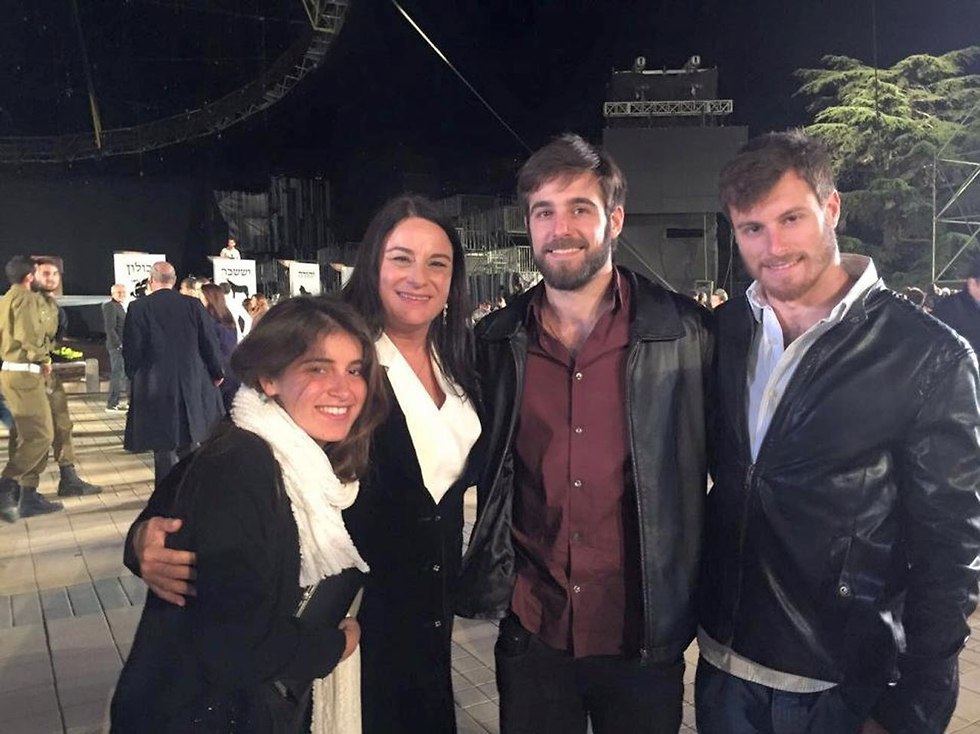
With hard work and great efforts, he finished the combat pilots' course at the top of the class, making Air Force history. For the first time, both father and son finished their course with distinction.
The experienced and confident father, the groundbreaking pilot and the first Israeli astronaut who led missions and squadrons, and the son who turned the loss of his father into a source of strength, which only bolstered his desire to realize his dream to become a pilot, taking advantage of every opportunity to volunteer to improve the society he lived in. Assaf believed in the values of courage, love for others, determination, humility and hard work. He believed that "a leader is one who moves people forward as a group, with self-realization and sacrifice."
These words are written in tears, because above all Ilan and Assaf loved life, but were not allowed to keep living it.
In life and in death, they are heroes to us all.
Excerpts from the book "My Heroes," which was published in Israel's 70th year.















